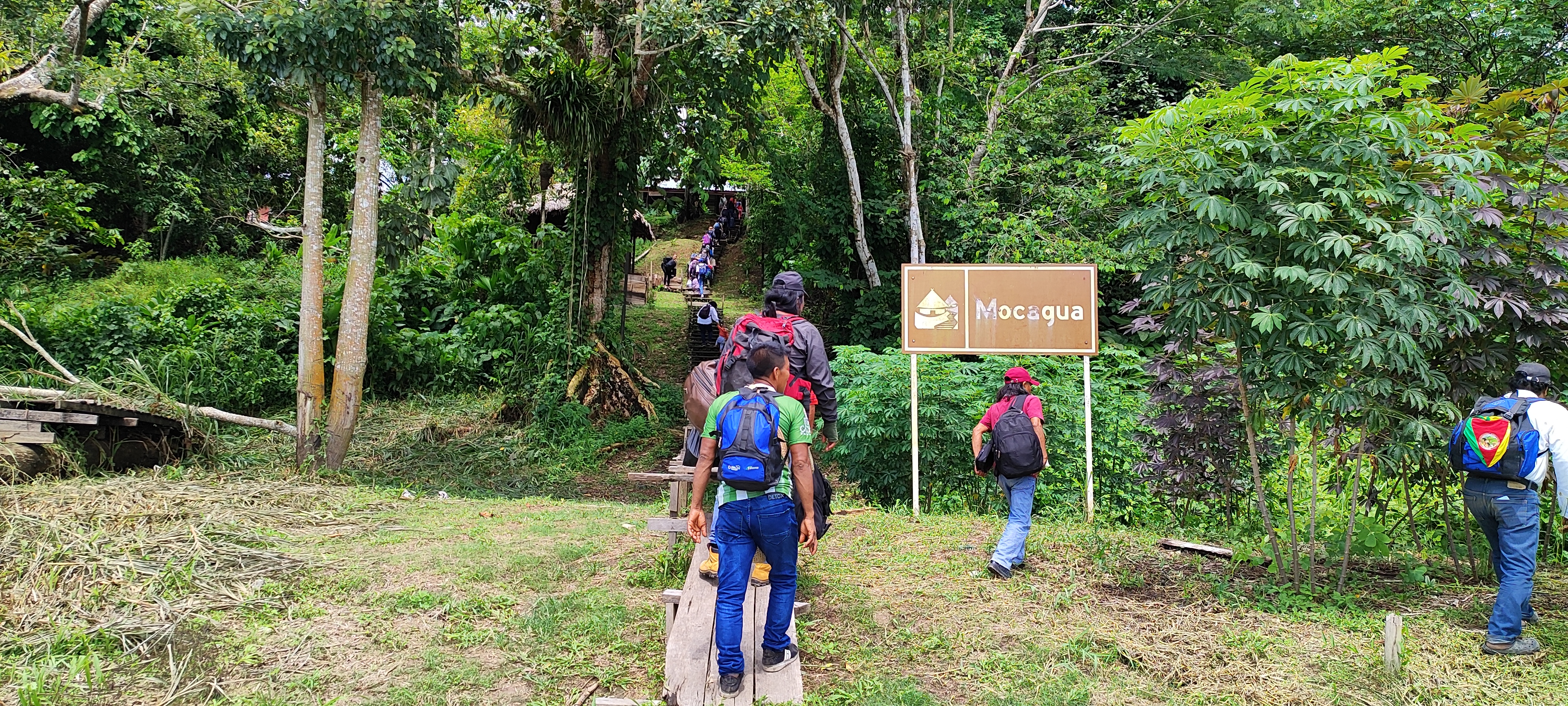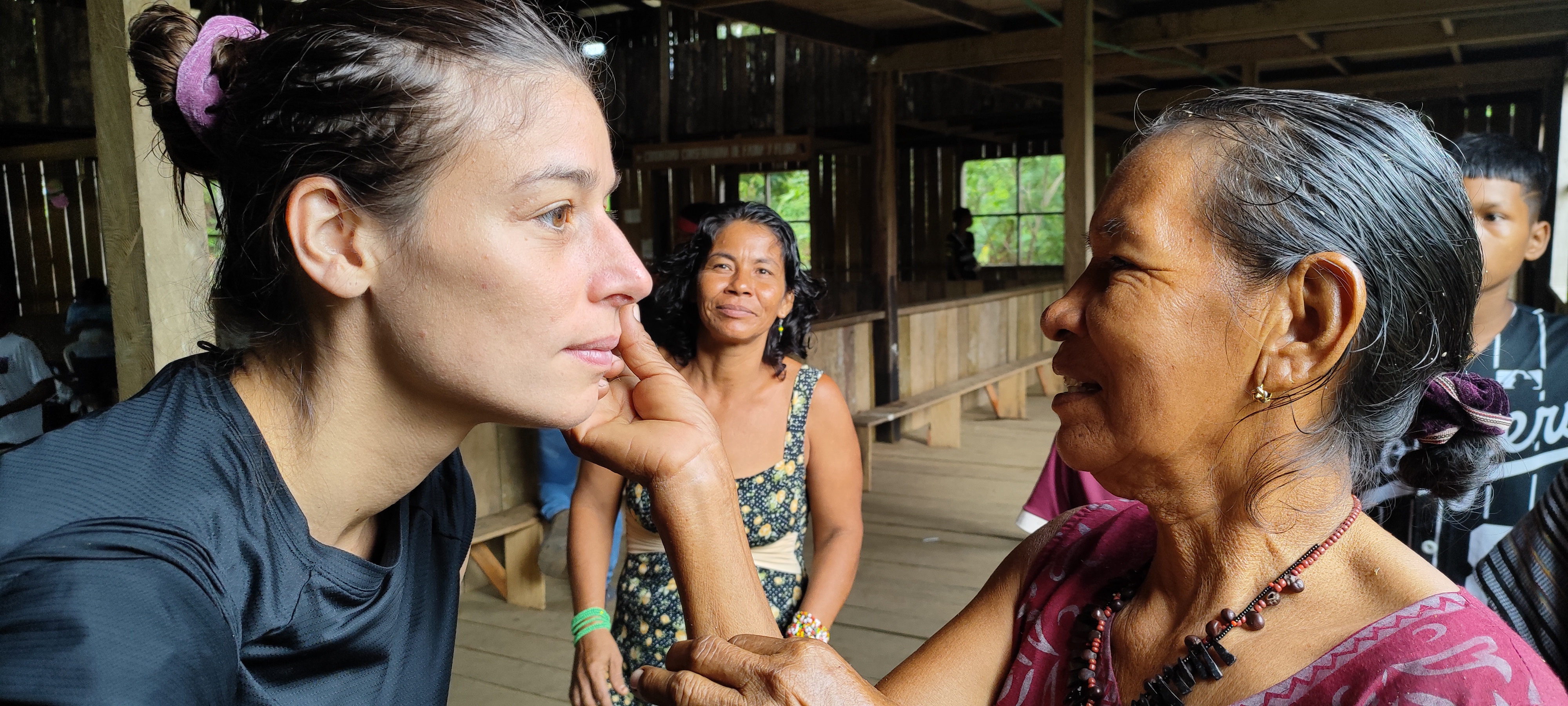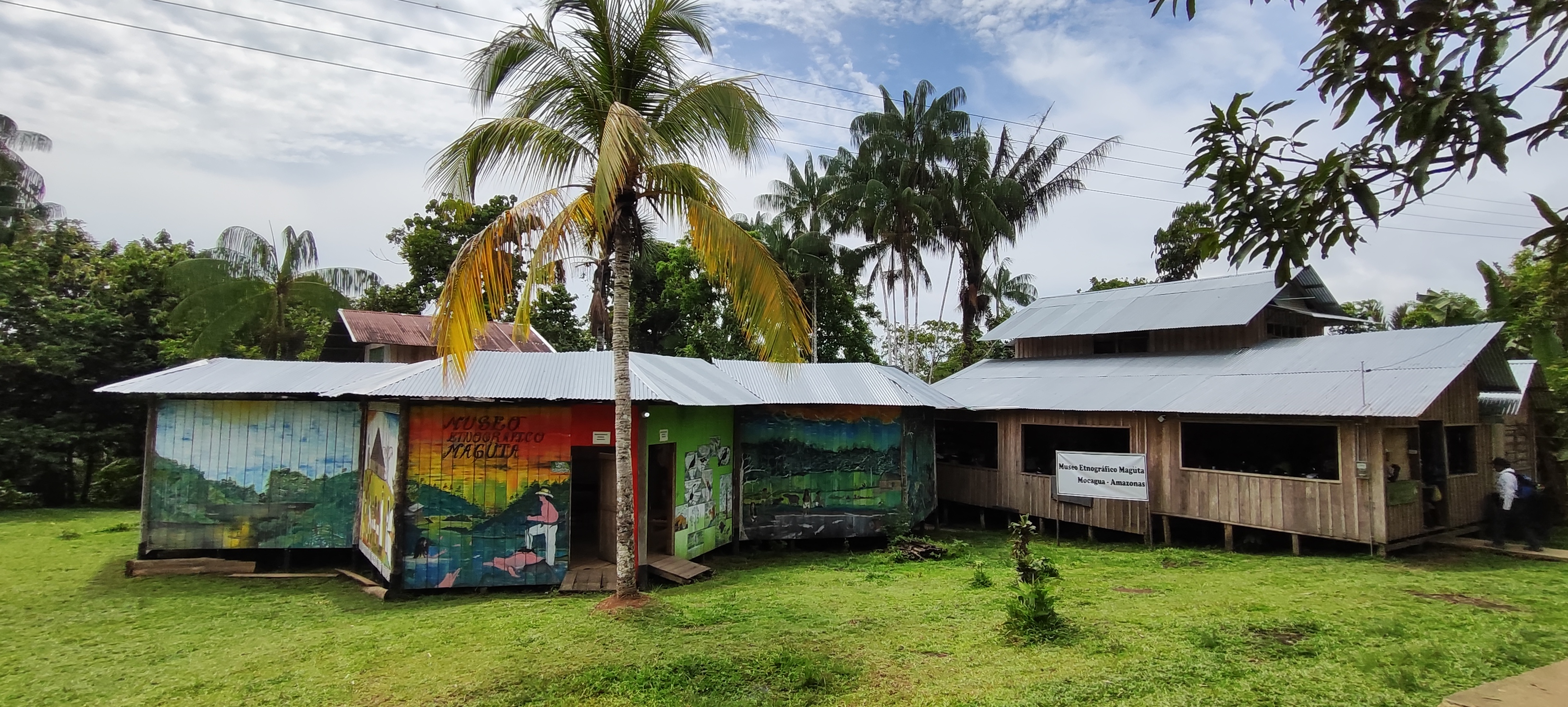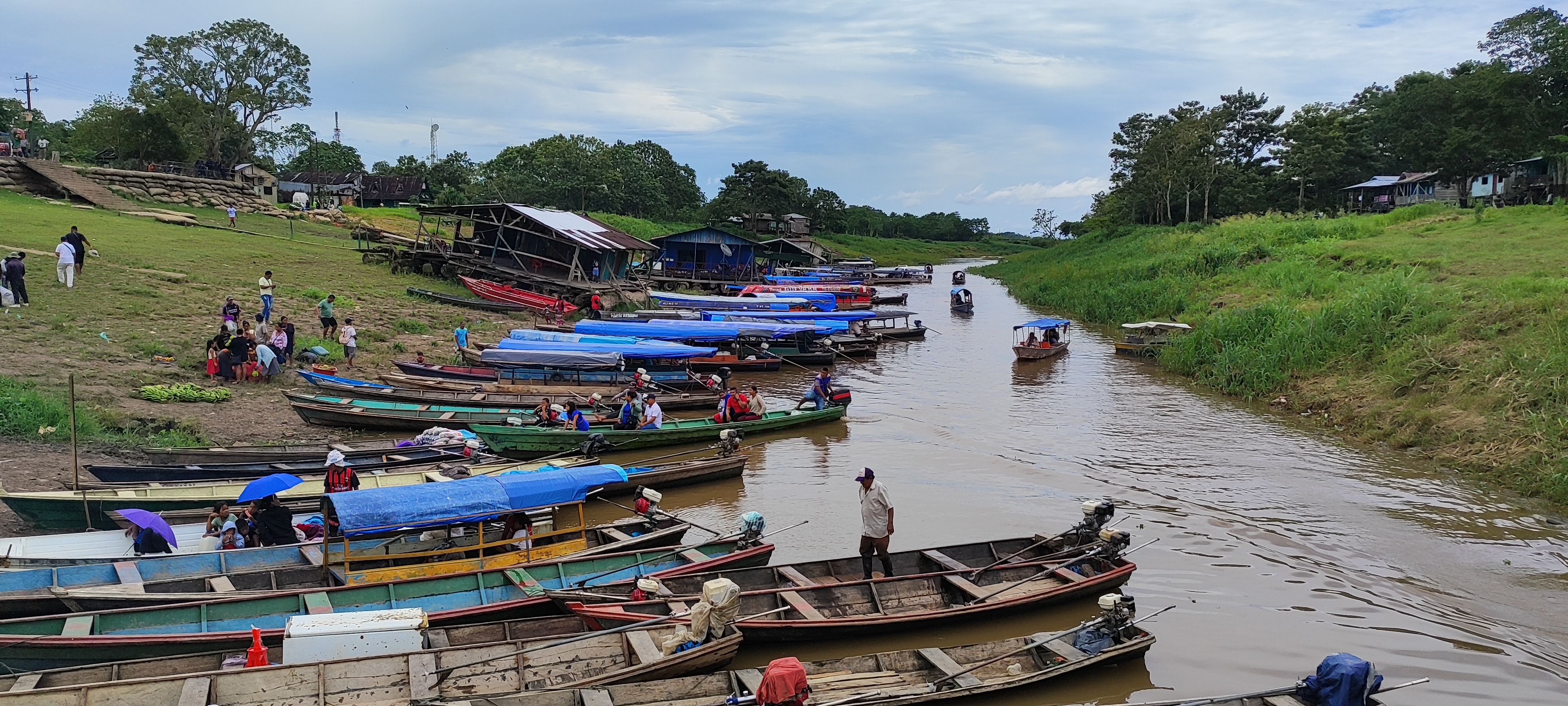- October 23, 2024
- MIT-Colombia
"Overall, the international collaboration enhanced the project's depth and impact, fostering a sense of unity and shared purpose among the Magütá communities."
We're thrilled to share the outcomes of the project "Reversing the Misrepresentation of the Cross-Border Region of the Amazon: Socioenvironmental Integration of the Border between the Andean Amazon and the Brazilian Amazon," one of the winners of our seed fund in 2022. Led by Lawrence J. Vale, Associate Dean and Ford Professor of Urban Design and Planning at the MIT School of Architecture and Planning (SA+P), Carlos Gilberto Zarate Botia, from the Universidad Nacional de Colombia, and Alessandra Fabbri, from the SA+P program, this initiative focused on fostering community dialogue among the Magütá people in the Amazon-Solimöes triple border region across Brazil, Colombia, and Peru.

The project began with a thorough pre-engagement process known as “acercamiento.” This involved a 10-day visit to each community along the Amazon-Solimöes river across Brazil, Colombia, and Peru during the preparatory phase to tailor the dialogue based on the collective priorities of the Magütá communities. This phase was crucial for building trust and understanding the unique cultural contexts of each community. Following this, a three-day workshop was conducted in November 2023, bringing together the Magütás "sabedores" (knowledge holders), leaders, and politico-administrative representatives from communities across the borders between Brazil, Colombia, and Peru. During this workshop, thematic discussions and participatory exercises addressed topics ranging from collective identity to political-territorial relations. This phase proved pivotal in establishing a vernacular for self-identification and territorial self-determination, culminating in a set of strategies for future organized mobilization and political action.
Significant Results and Major Findings
Significant results and major findings from this project included the successful creation of a dialogue platform that transcended national boundaries, fostering genuine communication and knowledge sharing among Magütá people, countering external pressures, and fostering a sense of unity and purpose. The project not only successfully reinforced the emotional and identity ties among the Magütá people, but also culminated in the formulation of strategic recommendations aimed at promoting collective mobilization across borders towards cultural and territorial self-determination. These recommendations emphasized the need for establishing a structured and organized grassroots approach to coordinated action across nation-state borders.

Key Outcomes and Achievements
- Enabling the development of a collaborative "Indigenous project" involving both non-Indigenous and Indigenous actors in a decolonized manner. This model of collaboration ensures a shift from respecting and incorporating Indigenous cultural practices and beliefs within a 'colonial' research project to ensuring that Indigenous peoples are in charge at all stages of collaboration—from agenda preparation to event organization and post-processing.
- Working within a disputed cross-border region using participatory approaches to establish a collaboration framework across nation-state borders. This respects the sovereignty of each nation-state while promoting the shared interests of an Indigenous nation whose ancestral land spans these borders.
- Establishing a framework for community empowerment and self-determination in territorial governance. By deploying the budget in a remote area despite logistical challenges, integrating through participatory work, and liaising with local institutions, suppliers, and over 80 workshop participants, the project demonstrated effective community-based management.
- Collecting extensive data through field research, including 14+ hours of voice-recorded conversations and presentations, 1000+ photographic documents, and numerous written assessments.
International Collaboration
Working cross-culturally and across countries presented both challenges and successes that significantly enriched the “Taküma Arü Maü” project. The diverse cultural contexts and administrative frameworks of Brazil, Peru, and Colombia required careful navigation to ensure respect for each nation's sovereignty while fostering a unified approach to Magütá identity and territorial management. One of the major challenges was coordinating activities and managing resources across the different countries. Budget deployment in remote areas posed logistical difficulties. However, these challenges were addressed through continuous dialogue and adaptive strategies, ensuring the project's progress and success.

The successes of this international collaboration were profound. Engaging with Magütá communities across borders allowed for a rich exchange of traditional knowledge and practices. This cross-border interaction strengthened the kinship bonds among the Magütá people and highlighted their shared history and challenges. The participatory approach ensured that the project was inclusive and respectful of the Magütá’s traditional knowledge and cultural practices. Working with international peers brought diverse perspectives and expertise, enriching the project’s outcomes. The collaborative efforts facilitated the collection of valuable insights and data, including voice recordings, photographs, and written observations. These contributions were critical in formulating our considerations on comprehensive policy recommendations and strategies for sustainable territorial management in the Amazon.
Overall, the international collaboration enhanced the project's depth and impact, fostering a sense of unity and shared purpose among the Magütá communities. It also set a precedent for future cross-border initiatives, demonstrating the importance of inclusivity, respect, and genuine dialogue in achieving sustainable development and territorial governance.
In the future...
We're excited to announce that this collaboration will continue! The team members are planning several additional projects related to Amazon conservation and Magütá self-determination, with a particular focus on working with Professor Santos Angarita, a respected Magütá leader and Professor at the Universidad Nacional de Colombia, sede Amazonia. This project exemplifies the essence of our Global Seed Fund by demonstrating the power of international collaboration in addressing complex challenges. We're looking forward to seeing the long-term impact of this work on sustainable development and territorial governance in the Amazon region.
